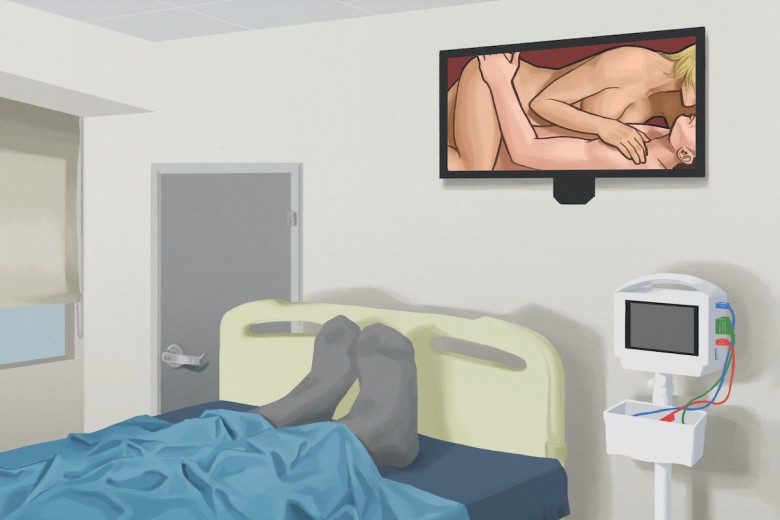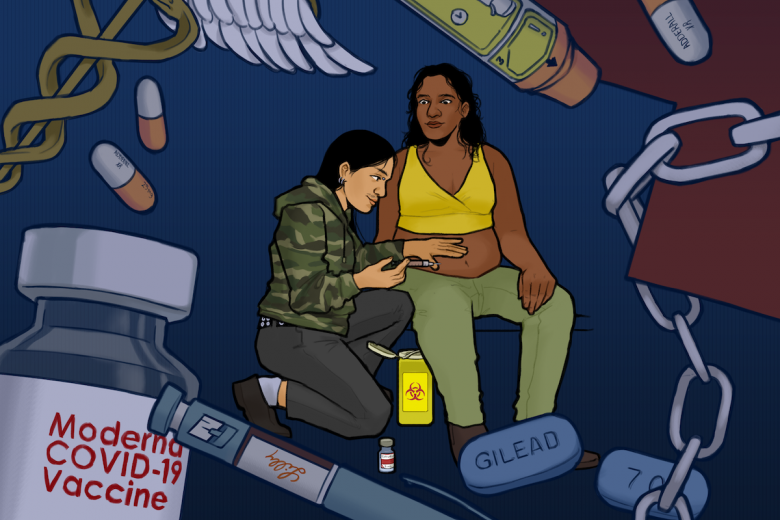
It’s been nearly 25 years since the Supreme Court decriminalized abortion in Canada, but the dust has yet to settle on Parliament Hill.
While Stephen Harper has repeatedly affirmed he will not reopen the abortion debate, eight private member’s bills challenging abortion access and rights have been introduced under his tenure. Conservative MP Stephen Woodworth took a swing in March 2012 with the submission of Motion 312, which obliged a Commons committee to study the sections of the Criminal Code that determine when a fetus becomes a person under the law.
The proposed motion was shot down 203-91 in September. Pro-choice spectators were relieved by the motion’s defeat but also outraged by the position of Rona Ambrose, Minister for the Status of Women, who voted in favour of the motion and cited concerns about discrimination against girls through selective abortions.
Organizations such as Fédération des Femmes du Québec and the Abortion Rights Coalition of Canada (ARCC) demanded Ambrose’s immediate resignation, and a petition calling for the minister to step down amassed over 6,000 signatures within 24 hours.
“Let’s be clear: the anti-choice movement hoped this motion would be their ticket to recriminalizing abortion,” said Joyce Arthur, executive director of ARCC. “Not only did Ambrose openly defy her prime minister’s instruction to his cabinet to vote against the motion, she threw women under the bus.”
Motion 312 is one of 45 anti-choice bills or motions submitted to Parliament since 1987. Others include Bill C-338, reintroduced in 2007 with the goal of criminalizing abortions after 20 weeks of gestation, and Bill C-484, the Unborn Victims of Crime Act, aimed at protecting fetuses from “third party attacks,” which passed a second reading in the spring of 2008.
Since the defeat of Motion 312, Conservative MPs have filed no less than 20 petitions concerning abortion. The anti-abortion movement has been trying to reframe the discussion from morality and religion to legal protections or “human rights” for the fetus. Rather than emphasizing the values of social conservatives, they point to restrictions around abortion access in social democracies like France and Sweden.
Despite a growing parliamentary anti-abortion caucus, every legal challenge to decriminalization has failed. In a 2010 EKOS poll, 52 per cent of Canadians considered themselves pro-choice, with 27 per cent identifying as pro-life.
While the anti-abortion movement has won neither popular support nor gains in court, its biggest victories may be overseas, where few Canadians extend their gaze. In 2010, Harper denied funding to the International Planned Parenthood Federation and refused to include abortion in the G8-G20 maternal health initiative, at a time when five million women are hospitalized for unsafe abortions every year and nearly 70,000 die every year from botched abortions. With the majority of Conservative MPs holding anti-abortion positions, many interpreted this as a nod to Harper’s socially conservative base.
In Canada, availability of abortion facilities varies across the country, with greater access in cities than rural areas. Only one in six hospitals in Canada offers abortion services. There are no northern facilities in Manitoba or Saskatchewan, and only one hospital north of the Trans-Canada Highway in Ontario offers abortion services. While the Canada Health Act requires provinces to fund abortion clinics, Prince Edward Island and New Brunswick do not contribute. P.E.I. is without any abortion facilities whatsoever. This has prompted the formation of Halifax-based Maritime Abortion Support Services, a group of 20 volunteers who provide information, transportation, and accompaniment for Maritimers seeking abortions.
Sectors of the pro-choice movement are presently pushing for improvements to reproductive rights across the board, calling for improved access to sex education and contraceptives, as well as empowering options for those who choose to have children.
The reproductive justice movement, which emerged from groups representing women of colour and Indigenous women, has gone further by addressing inequalities in access, advocating for health service provision to traditionally marginalized communities. Atlanta-based SisterSong Women of Color Reproductive Justice Collective is one such group. Their co-founder, Loretta Ross, spoke at Concordia University in Montreal this past fall and relayed the story of her forced sterilization at the age of 23.
“Reproductive violence happens when people are unable to control their own fertility,” explained Ross, who elaborated on an approach to reproductive rights that is not separate from immigrant, Indigenous, or labour rights, and seeks to leave no one behind.
“It’s not just about the right to have a child or not have a child,” Ross summarized. “We also have to fight for the right to raise our children in safe and healthy environments.”






